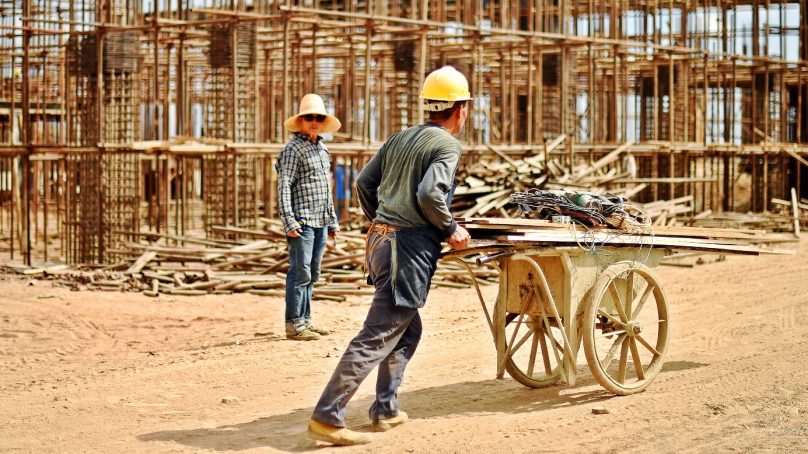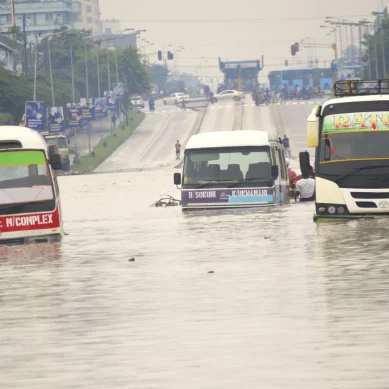
The launch of China’s Outlook on Peace and Development in the Horn of Africa initiative in March 2022 to facilitate a Chinese-led peace process in Ethiopia and the Horn of Africa highlights Beijing’s interest in the region that is grappling with humanitarian crises touched climate change and scramble for natural resources.
In the wake if the launch of the initiative, China’s special envoy to the Horn of Africa, Xue Bing, has made a series of whirlwind visits to the region. China’s flurry of diplomatic activity in the Horn is raising eyebrows and a growing number of concerns in the region, however.
The first concern is the apparently little coordination with existing African-led mediation initiatives in the region. The initiatives include the Office of Olusegun Obasanjo, the African Union’s (AU) High Representative for the Horn of Africa and African institutions such as the Panel of the Wise, which mediates on behalf of the AU Peace and Security Council.
In addition, it is also unclear how the new initiative aligns with the Intergovernmental Authority on Development (IGAD), the AU and international actors like the United Nations. The launch of the Chinese initiative, therefore, has triggered intense speculation and confusion within the region.
The initiative is furthermore seen as tilted in favour of the government of Ethiopia, a long-time ally since the Cold War era. This is consistent with China’s objectives to strengthen ties with incumbent leaders in the region, many of whom face mounting pressure to step down after having served multiple extra-constitutional terms in office.
The flipside of this incumbency-focused mediation is that it marginalises political opponents, other significant political actors and civil society. Without the participation of these other key stakeholders, genuine peace-making is practically impossible, as noted in the AU’s Mediation Support Handbook. By definition, mediation provides opposing sides a neutral space to resolve their differences through trusted third-party facilitation.
Opposition groups and civil society in Ethiopia and elsewhere in the Horn of Africa, however, accuse China of lacking impartiality and seeking to maintain the status quo by providing weapons and economic aid to governments in the region engaged in conflict.
Against this backdrop, the African Centre for Strategic Studies, says that the failure to involve all parties results in failure to discuss core issues in the region’s complex conflicts. Xue Bing acknowledged as much following the Chinese-led peace conference for the Horn of Africa held in June 2022, noting that the talks neither discussed a specific conflict nor mediation “as nobody raised the issue.”
“These shortcomings in China’s mediation approach in the Horn raise questions about what this initiative is really about. Judging from Chinese state-owned media reporting and leadership statements, China’s Horn initiative is at least partly aimed at displacing Western diplomacy in the region,” ACSS says in a statement released on Thursday October 13.
The statement recalls that China’s Horn initiative started with State Councillor and Foreign Minister Wang Yi’s unscheduled stop in Addis Ababa, Ethiopia in December 2021 after the 8th Forum for China Africa Cooperation (FOCAC) in Dakar, Senegal.
The envoy made public China’s strong support for Prime Minister Abiy Ahmed who was embroiled in a disruptive civil conflict with the Tigray People’s Liberation Front (TPLF).
The initiative took off in earnest with the June 2022 peace conference co-hosted by Ethiopia and Kenya and attended by senior leaders from Djibouti, Somalia, South Sudan, Sudan and Uganda. The conference laid out an ambitious programme, including an invitation to China to assist in conflict resolution and a commitment by countries to meet regularly to address crises.
The initiative was launched as Abiy faced mounting pressure from his Western allies over alleged human rights violations committed by Ethiopian forces in Tigray. Ethiopia was as a result suspended in January 2022 from the Africa Growth and Opportunity Act (AGOA), which provides African countries duty-free access to US markets.
The timing of China’s pledge of support to Abiy, ACSS says, “appears to be aimed at exploiting this tension with the West.”
China is pursuing a similar strategy of protecting incumbent regimes in South Sudan and Sudan, where it opposes sanctions and what it calls “foreign intervention.” China also strongly backs Eritrea, which faces Western sanctions and whose troops are fighting alongside Ethiopian forces.
China’s special envoy to the Horn joins a growing list of Chinese diplomats—six in total—dealing with high-level African issues. China’s mediation activities have grown in tandem with its One Belt One Road strategy (known internationally as Belt and Road Initiative (BRI)) launched in 2012.
Notable previous Chinese mediation efforts in Africa include South Sudan (2013-present), Yemen (2011), Sudan (Darfur, 2009), the two Sudans (2008-2011), Rwanda and the Democratic Republic of the Congo (2008) and Zimbabwe (2008).
None of the conflicts has, however been resolved. The fighting in DRC, South Sudan, Darfur in Sudan and Yemen have instead intensified in the past 10 years.
China says its intraregional dialogue on mediation is focused on “the triple challenges of security, development and governance” based on “Chinese wisdom” (Zhongguo de zhihui). This Communist Party of China term refers to the promotion of Chinese governance norms and practices as alternatives to Western liberal democracy.
Advancing China’s authoritarian governance model, often framed as “developmental peace” (heping fazhan), is the conceptual underpinning of China’s mediation efforts in the Horn.
While this approach is often linked to China’s ostensible policy of “non-interference,” in practice this translates into a deep commitment to preserving China’s ties with ruling regimes to the point of not taking stances against them even when they engage in gross misconduct.
Yet mediators have a moral duty to do so, as shown by the examples of renowned peace brokers like South Africa’s Nelson Mandela, Tanzania’s Julius Nyerere, and Botswana’s Ketumile Masire.
China’s focus on regime preservation reflects its own preoccupation with “stability preservation” (weiwen) – its guiding governance concept at home. The pursuit of weiwen abroad explains why non-regime stakeholders do not trust Chinese mediation. China’s Horn initiative, thus, risks being not only ineffective but counterproductive.
Protecting BRI interests is another priority of China’s Horn initiative. Ethiopia hosts 400 Chinese manufacturing and construction projects worth over $4 billion as well as hundreds of contractors at the Grand Ethiopian Renaissance Dam, Africa’s largest. A mediated settlement would benefit China by reducing violence that could disrupt its large portfolio.
- A Tell report











